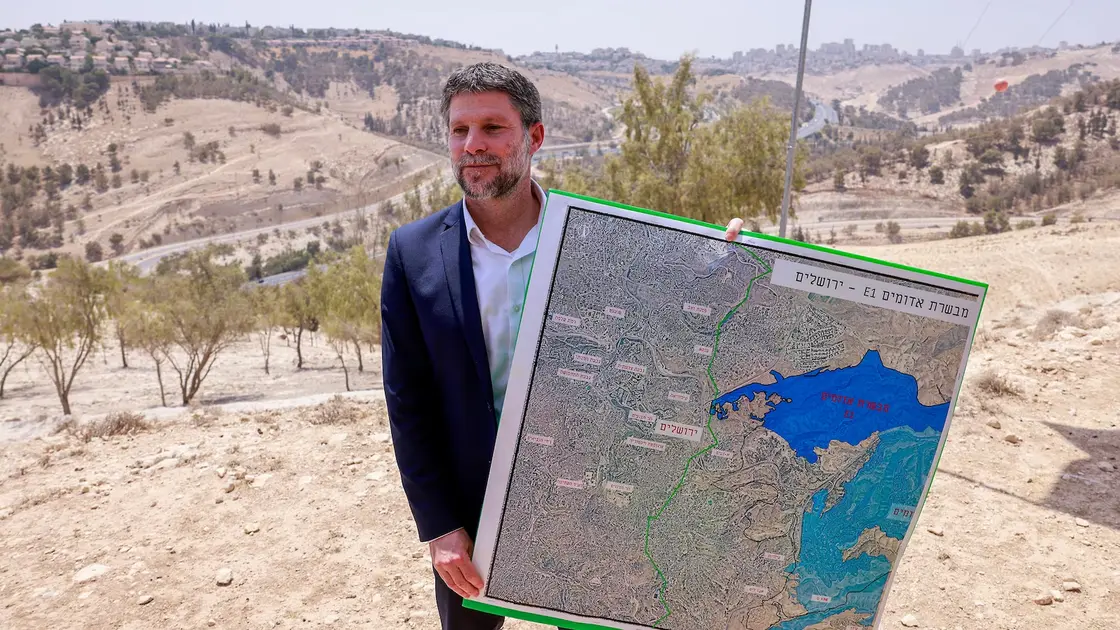T4K3.news
E1 plan passes planning board
Israel approves a plan to build in E1 that could split the West Bank and draw international scrutiny.

A planning committee approved a controversial E1 project that would effectively divide the West Bank by linking Jerusalem to Maale Adumim and tightening control over movement.
Israel advances E1 plan splitting the West Bank
The Higher Planning Committee of the Civil Administration under the Defense Ministry approved the E1 plan to build 3,400 housing units in a 4.6 square mile corridor that would separate Jerusalem from the settlement of Maale Adumim. The area sits in Area C, granting Israel full civil and security authority and potentially restricting Palestinian movement.
Palestinians and many Western governments criticized the move. The Palestinian Foreign Ministry said the plan undermines the two-state solution and fragments Palestinian geography. Bedouin communities near Maale Adumim reported demolition notices and orders to vacate. Britain, France and Germany urged restraint and warned the plan could breach international law and threaten peace talks. The White House declined to comment, while a U.S. ambassador signaled it would not block Israeli actions.
Key Takeaways
"The seal has broken."
Smotrich on recognition of a Palestinian state
"Whoever in the world is trying to recognize a Palestinian state today, will receive our answer on the ground"
Smotrich on recognition and action
"The Palestinian Foreign Ministry said the E1 plan undermines the prospects of implementing the two-state solution, embodying the Palestinian state on the ground, and fragments its geographical and demographic unity."
Palestinian official response
"If implemented, it would divide a Palestinian state in two, mark a flagrant breach of international law and critically undermine the two-state solution"
David Lammy on the plan
Analysts say the move signals a shift toward cementing facts on the ground. If carried out, it could complicate future negotiations and reshape the geography and mobility of West Bank cities. The E1 corridor has long been seen as a bottleneck for any viable two-state arrangement, and its development would likely provoke international scrutiny and strategic recalibration by allies.
For Palestinians, the plan tests international support for a two-state framework and raises questions about governance, displacement and rights. For Israeli policymakers, it reflects a willingness to press settlement expansion even as global diplomacy pressures a path to peace. The episode underscores how settlement politics can influence regional stability and provoke diplomatic friction across major capitals.
Highlights
- Borders are drawn on maps and in the ground at once
- A plan to cut the West Bank in two speaks louder than words
- If peace is a map the E1 corridor rewrites the terrain
- Policy should protect lives not redraw lines
Political sensitivity and potential backlash
The E1 plan touches on sovereignty, international law, and the future of the two-state framework. It risks backlash from Palestinians and key Western partners, and could affect diplomacy and regional stability.
Peace requires navigating both ground realities and diplomatic realities.
Enjoyed this? Let your friends know!
Related News

Fantasy RB Top

Fourth pick becomes the sweet spot in 2025 fantasy football drafts

Shiloh Ballard endorsed for Valley Water board

Descenders Next launches unexpectedly

Browns set to lean on Sampson as QB picture remains unsettled

Idaho Implements New Vaccine Policies Amid Trust Crisis

Procter & Gamble replaces CEO Moeller with Jejurikar

Colorado expands vaccine guidance options
